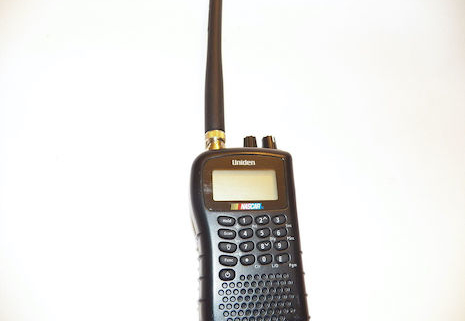Police Scanners: Legal or Not?
› Indiana
› Kentucky
› New York
› MinnesotaOther states also have laws regarding scanner use during the commission of a crime, such as this one from the Code of Virginia.
§ 18.2-462.1. Use of police radio during commission of crime.
No person: (1) who has been convicted of a felony violation of chapter 28 of title 21 involving the illegal manufacture, sale or delivery or possession with intent to manufacture, sell, or deliver a controlled substance classified in Schedule I or II; or (2) who has been convicted of a felony in violation of chapter 8 of this title involving the burglary or breaking and entering of a dwelling house or apartment, whether the house or apartment is occupied or not, any business place, or public building, with the intent to commit larceny; shall carry, transport, or have in his or her possession, or under his or her control outside of his or her own home, any operational police radio, police scanner, or any other device capable of monitoring police broadcasts. Every person violating the provisions of this section shall, upon conviction, be punished by imprisonment for not more than five (5) years, or a fine of not more than five thousand dollars ($5,000), or both.
And, Michigan:
750.508 Equipping vehicle with radio able to receive signals on frequencies assigned for police or certain other purposes; violation; penalties; radar detectors not applicable.
Sec. 508. (1) A person who has been convicted of 1 or more felonies during the preceding 5 years shall not carry or have in his or her possession a radio receiving set that will receive signals sent on a frequency assigned by the federal communications commission of the United States for police or other law enforcement, fire fighting, emergency medical, federal, state, or local corrections, or homeland security purposes. This subsection does not apply to a person who is licensed as an amateur radio operator by the federal communications commission. A person who violates this subsection is guilty of a misdemeanor punishable by imprisonment for not more than 1 year or a fine of not more than $1,000.00, or both.
(2) A person shall not carry or have in his or her possession in the commission or attempted commission of a crime a radio receiving set that will receive signals sent on a frequency assigned by the federal communications commission of the United States for police or other law enforcement, fire fighting, emergency medical, federal, state, or local corrections, or homeland security purposes.
As you can clearly see, it’s best to check local laws before purchasing a scanner for your home.

It’s not that we were nosy, though. Instead, we’d sometimes, for example, hear an officer’s call for help, and if we were close enough to assist we could do so, and would. Also, by listening to nearby agencies we’d often hear of pursuits heading in our direction, fleeing felons, descriptions of stolen cars and wanted persons, locations of fires, car crashes, explosions, and other valuable information.
Comments are closed.

 From U-Boat to Yankee 9ers and Zip Guns: More Cop Speak
From U-Boat to Yankee 9ers and Zip Guns: More Cop Speak


I just want to say: you have a fascinating blog, and thank you for it.